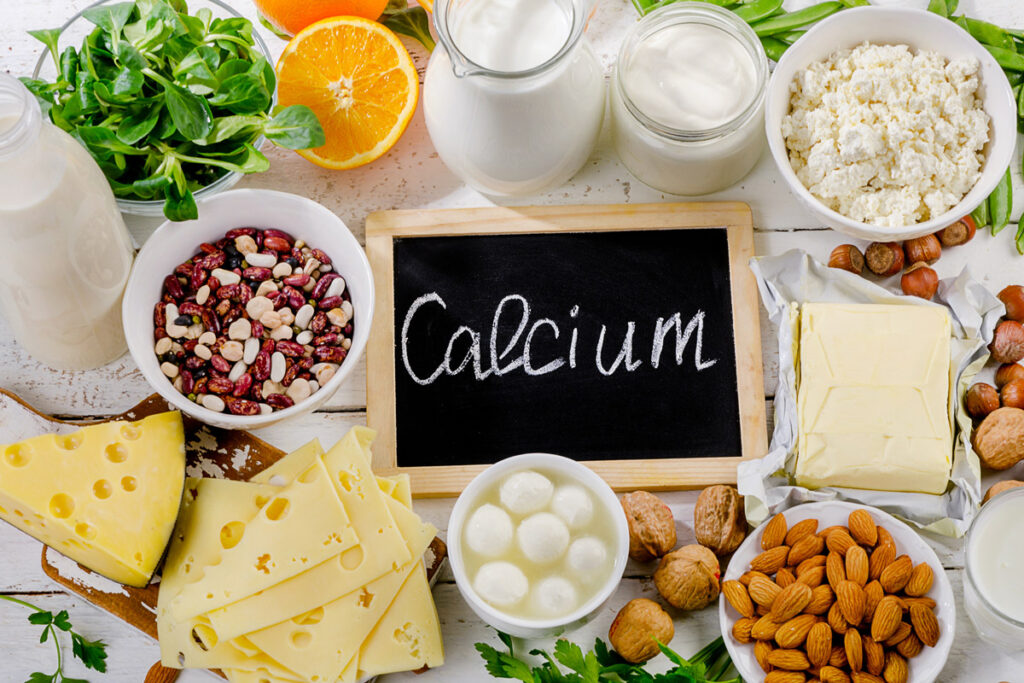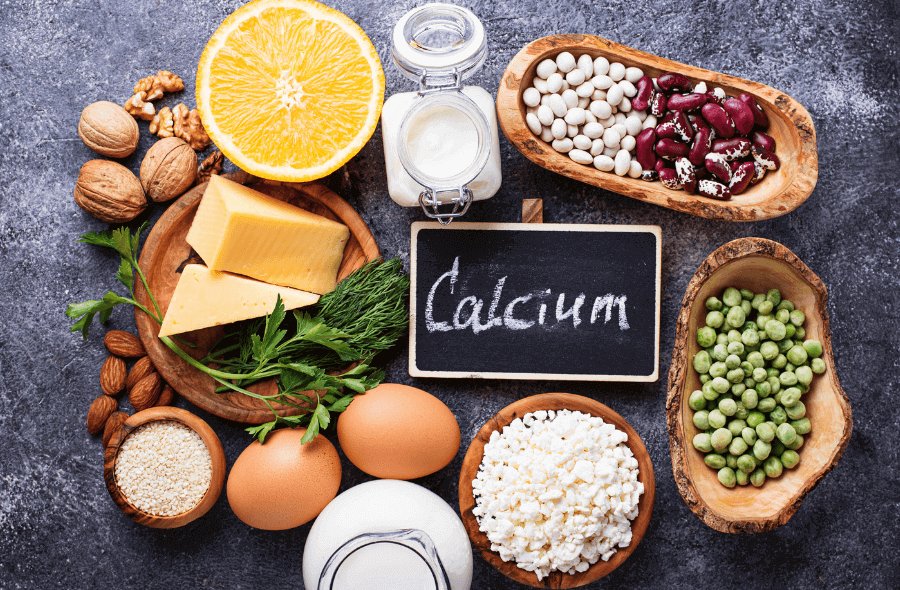Calcium is one of the most vital minerals for the human body, playing a crucial role in maintaining strong bones, healthy teeth, and proper functioning of the heart, muscles, and nerves. Despite its importance, many people don’t consume enough calcium, which can lead to a range of health issues.
In this blog post, we’ll explore the benefits of calcium, its best dietary sources, and the symptoms of calcium deficiency to help you understand why this mineral deserves a prime spot in your daily diet.
Why is Calcium Important?
Calcium is the most abundant mineral in the body, with about 99% of it stored in bones and teeth. The remaining 1% circulates in the blood and is essential for various bodily functions. Here are some of the key benefits of calcium:
- Builds and Maintains Strong Bones and Teeth
Calcium is the primary building block of bones and teeth. It helps maintain bone density and strength, reducing the risk of fractures and osteoporosis, especially as we age. - Supports Muscle Function
Calcium plays a critical role in muscle contraction and relaxation. It helps muscles, including the heart, function properly and prevents cramps and spasms. - Aids Nerve Signaling
Calcium is essential for transmitting nerve impulses throughout the body. It ensures that your brain and body communicate effectively. - Promotes Blood Clotting
Calcium is involved in the blood clotting process, which is vital for wound healing and preventing excessive bleeding. - Regulates Hormones and Enzymes
Calcium helps regulate the release of hormones and enzymes that influence digestion, metabolism, and other bodily functions.
Top Dietary Sources of Calcium
While dairy products are the most well-known sources of calcium, there are plenty of other options for those who are lactose intolerant or follow a plant-based diet. Here are some of the best sources of calcium:
- Dairy Products
- Milk (cow’s, goat’s, or sheep’s)
- Cheese (especially hard cheeses like cheddar and parmesan)
- Yogurt and kefir
- Leafy Green Vegetables
- Kale
- Spinach
- Bok choy
- Collard greens
- Fortified Foods
- Fortified plant-based milks (almond, soy, oat)
- Fortified cereals and orange juice
- Fish with Edible Bones
- Canned sardines and salmon
- Nuts and Seeds
- Almonds
- Chia seeds
- Sesame seeds
- Legumes
- Chickpeas
- Lentils
- White beans
- Tofu and Tempeh
- Especially calcium-set tofu
Symptoms of Calcium Deficiency
Calcium deficiency, also known as hypocalcemia, can lead to a range of health problems. Early symptoms may be mild, but prolonged deficiency can have serious consequences. Here are some common signs to watch out for:
- Muscle Problems
- Cramps, spasms, or weakness
- Numbness or tingling in the hands, feet, or face
- Bone Issues
- Brittle bones that are prone to fractures
- Osteoporosis (porous and weak bones)
- Dental Problems
- Weak or brittle teeth
- Increased risk of cavities
- Fatigue and Lethargy
- Feeling unusually tired or sluggish
- Skin and Nail Changes
- Dry, itchy skin
- Brittle nails
- Neurological Symptoms
- Confusion or memory loss
- Depression or irritability
- Cardiovascular Issues
- Irregular heartbeat (in severe cases)
Who is at Risk of Calcium Deficiency?
Certain groups of people are more prone to calcium deficiency, including:
- Postmenopausal women (due to decreased estrogen levels)
- Older adults (as calcium absorption decreases with age)
- People with lactose intolerance or dairy allergies
- Those following a vegan or plant-based diet without proper supplementation
- Individuals with certain medical conditions (e.g., kidney disease, celiac disease)
How Much Calcium Do You Need?
The recommended daily intake of calcium varies by age, gender, and life stage:
- Adults (19–50 years): 1,000 mg per day
- Women over 50 and men over 70: 1,200 mg per day
- Teenagers (9–18 years): 1,300 mg per day
It’s important to note that calcium absorption is enhanced by vitamin D, so make sure you’re getting enough sunlight or consuming vitamin D-rich foods like fatty fish, egg yolks, and fortified products.
Tips for Boosting Calcium Intake
- Incorporate Dairy or Alternatives
Add milk, yogurt, or fortified plant-based milk to your daily diet. - Snack on Nuts and Seeds
Almonds, chia seeds, and sesame seeds are great calcium-rich snacks. - Eat More Leafy Greens
Add spinach, kale, or collard greens to your meals. - Choose Calcium-Set Tofu
Use tofu in stir-fries, salads, or soups. - Consider Supplements (if needed)
If you struggle to meet your calcium needs through diet alone, consult your doctor about calcium supplements.

Calcium is a cornerstone of good health, supporting everything from strong bones to a healthy heart. By incorporating calcium-rich foods into your diet and being mindful of potential deficiency symptoms, you can ensure your body gets the calcium it needs to thrive.
Remember, a balanced diet, combined with adequate vitamin D, is the key to maximizing calcium absorption and reaping its benefits.
Do you have a favorite calcium-rich food or a tip for boosting calcium intake?
Share it in the comments below! Let’s build stronger, healthier lives together. 💪🥛

